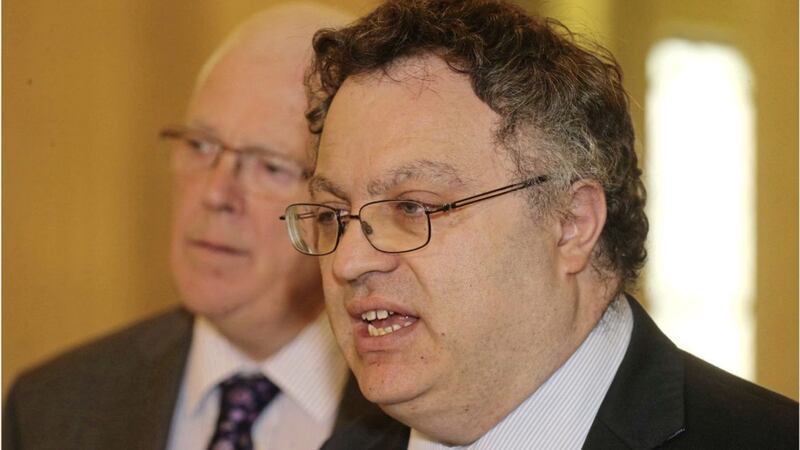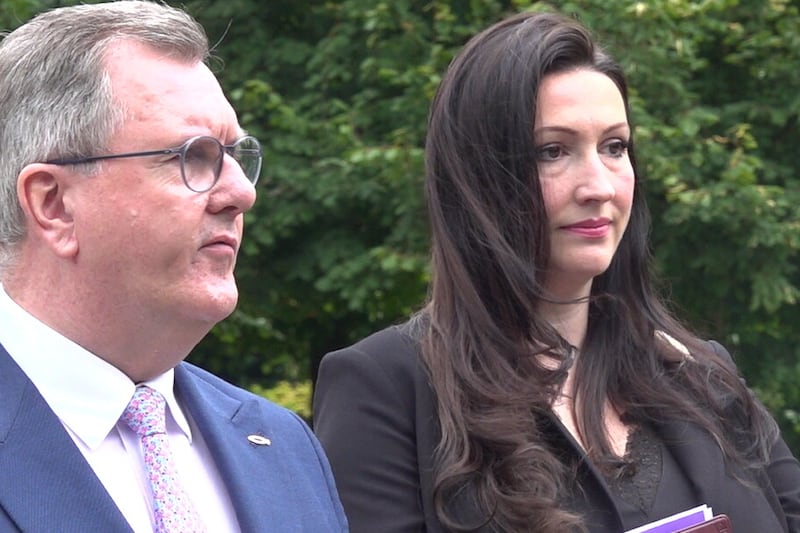THE prime minister is accelerating to the cliff edge in the Brexit process and irrationally refusing to come to terms with the contradictions in her red lines, and the limited coherent or viable options available to the UK.
There is no such thing as a good or sensible Brexit. Preferably, Brexit can be reconsidered through a People’s Vote. If not, we should seek to do the least damage possible.
This effort is hampered by ongoing myths and misunderstandings, deliberate or otherwise.
First, some continue to believe a different type of withdrawal agreement can be negotiated, especially on the backstop.
It is not possible to short-cut to any future relationship option, including a customs union and/or the Norway model. Any version of a negotiated Brexit first requires a withdrawal agreement.
Read More:
- Theresa May's Brexit deadlock plans 'wasted opportunity' say Stormont pro-Remain parties
- Theresa May to hold further talks with MPs on backstop
- Analysis: The British government's Brexit strategy now requires a complete overhaul
Second, a no-deal Brexit would be a disaster for Northern Ireland. It would be very difficult to avoid an economic border on the island of Ireland as the two different jurisdictions would be in different customs and regulatory zones.
It doesn’t matter if each is seeking to apply the same rules. Rather, it is a matter of mutual recognition and legal enforcement.
The EU, through Ireland, has an obligation to protect the integrity of its customs union and single market.
While the World Trade Organisation (WTO) may not have a strong enforcement mechanism, the UK nevertheless has an obligation to police its borders with the rest of the world, including in this context the EU, under the Most Favoured Nation principle. Otherwise, its credibility as an adherent to international law would be compromised and would impede concluding future trade deals.
Aside from the issue of the nature and location of any infrastructure, both tariff and non-tariff barriers need to be taken into consideration.
Companies will face tariffs in relation to export for either sales or processing, with our agri-food sector particularly vulnerable. There are wider issues for the service sector, the largest component of our economy and recent FDI successes, in terms of the legal framework for conducting business.
Read More:
- Jacob Rees-Mogg presses ahead with appearance at DUP fundraiser despite criticism from NI Tories
- MP urges SNP leaders to make case for a second vote on Scottish independence
Further, a successful independent trade policy is a fantasy. We don’t have to choose between maximising trade with the EU versus the rest of the world.
While the EU may have fallen a little as a proportion of UK trade, it remains by far the most important market and represents the deepest level of economic integration in the world. This is what the UK would turn its back on in a no-deal scenario.
We can maximise trade through the rest of world, benefitting from existing EU trade deals and negotiating new trade opportunities from a position of strength.
Membership of the EU does not prevent the UK trading with any part of the world. By contrast, an independent trade policy would see the UK chasing trade deals from a position of weakness, and could see compromises around labour, environment, food safety and human rights.
WTO rules are only a floor for world trade. Most trade flows through free trade agreements and customs unions that build upon this platform. Few states trade only on WTO rules.
Some say the EU needs the UK more than vice versa. This may reflect the balance of trade in absolute terms, but the real negotiating strength lies in the proportions. The UK is proportionally far more dependent on trade links with the EU than the EU is with the UK.
So talk of quickly securing a new free trade agreement are misplaced and do not reflect the balance of realities. And of course, a simple free trade agreement alone would not avoid the challenge of a reintroduced border.








